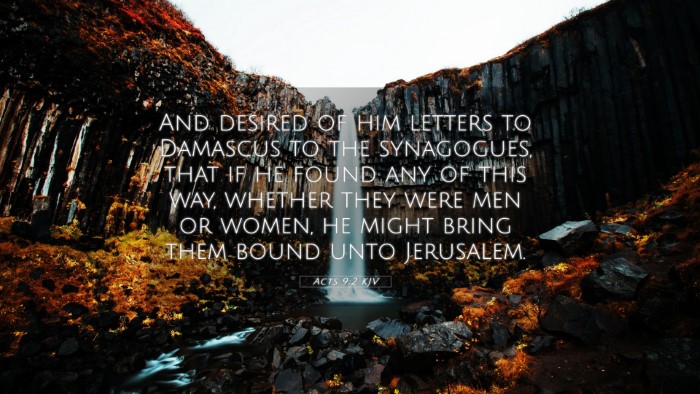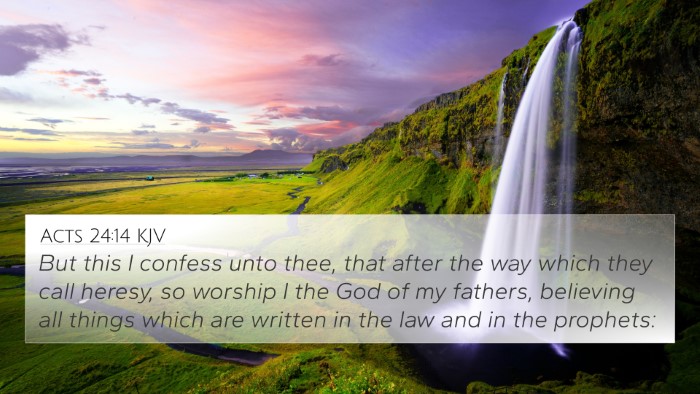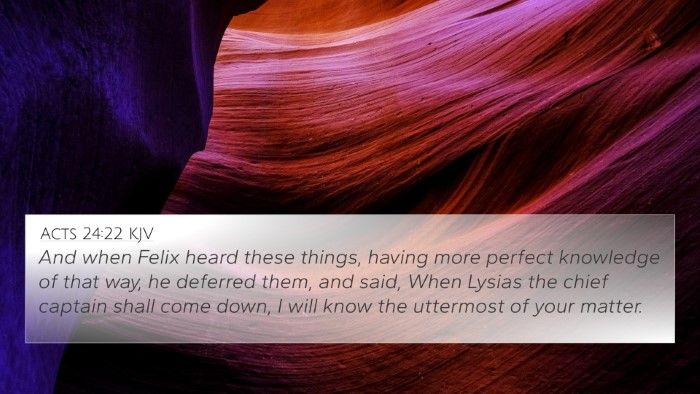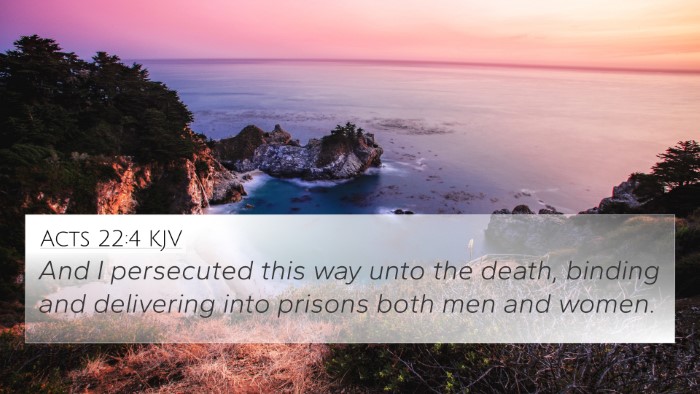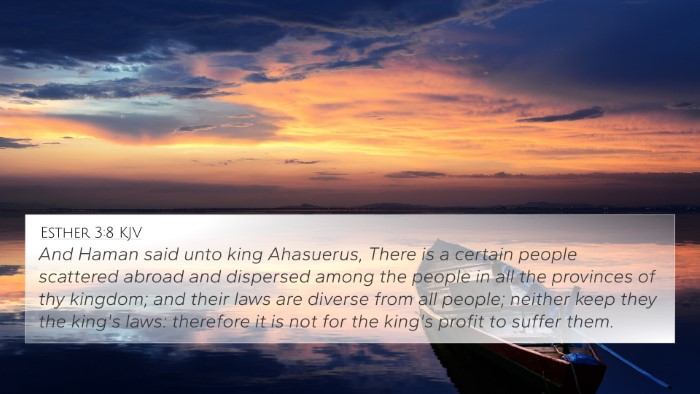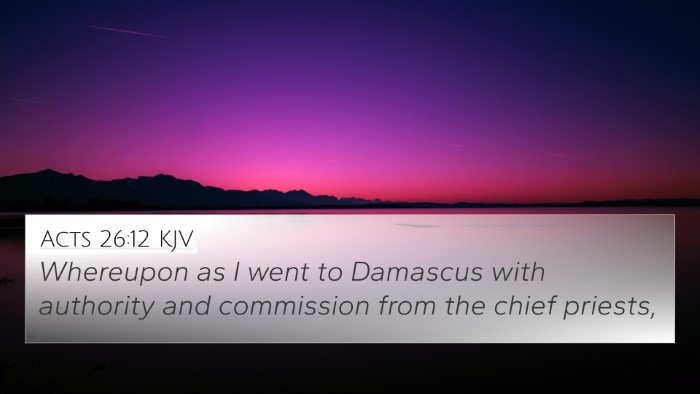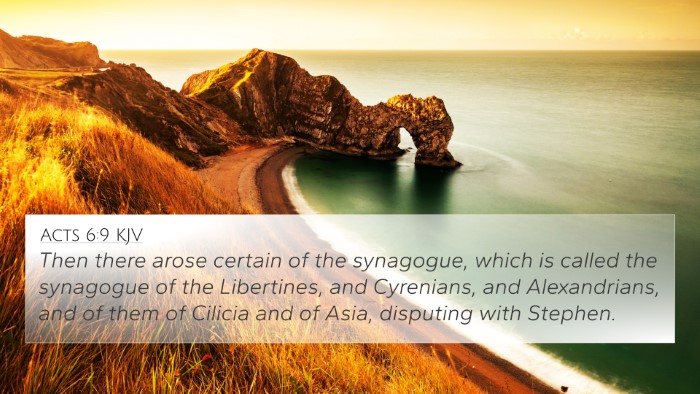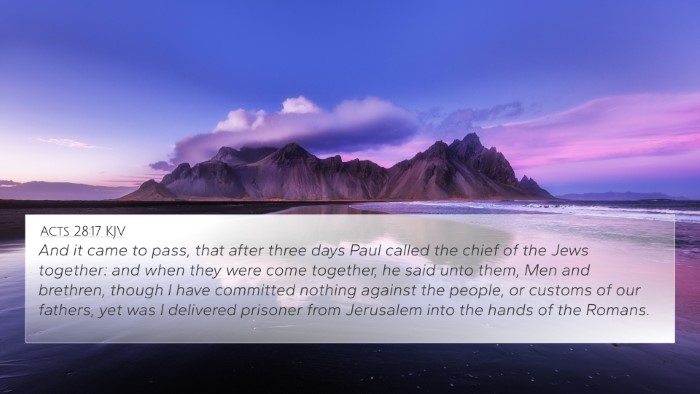Understanding Acts 9:2
Acts 9:2 reads:
"And desired of him letters to Damascus to the synagogues, that if he found any of this way, whether they were men or women, he might bring them bound unto Jerusalem."
Summary and Interpretation
Acts 9:2 presents a pivotal moment in the early Christian church, highlighting Saul of Tarsus's zealous commitment to persecuting Christians. This verse can be understood as follows:
-
Saul's Authority:
Saul sought official letters from the high priest, indicating the religious and legal backing for his mission. This aligns with his background as a Pharisee and a zealous protector of Jewish law, as noted by Matthew Henry. His pursuit of Christians reflects the tension between established Jewish traditions and the emerging Christian faith.
-
The Way:
The term "this way" refers to the early followers of Jesus. According to Albert Barnes, this phrase encapsulates the doctrine and lifestyle of the nascent church. It signifies a movement distinct from traditional Judaism, which Saul was intent on suppressing. The use of this term underscores the identity the early Christians established.
-
Persecution:
This verse highlights the extreme measures taken by Saul in his campaign against Christians. Adam Clarke emphasizes that Saul's actions illustrate the fierce opposition faced by the early church, a theme echoed throughout the New Testament. These actions later contrast dramatically with his transformation on the road to Damascus.
-
Gender Neutrality:
Saul's intent to bind both men and women illustrates the indiscriminate nature of persecution. Matthew Henry notes that this represents a broader societal challenge faced by early Christians, shattering traditional gender roles in the context of faith. The reference to both genders signifies the inclusive nature of the early church.
-
Destination of Damascus:
Damascus was a center for Jewish thought and commerce. Therefore, targeting this city signifies Saul's ambition to eradicate Christianity at its growing roots. This strategic choice reflects his determination to confront and extinguish what he perceived as heresy, which is discussed in Albert Barnes' commentary.
Bible Cross-References for Acts 9:2
This verse connects with several others throughout Scripture that illuminate its meaning:
- Acts 8:3: "But Saul began to destroy the church. Going from house to house, he dragged off both men and women and put them in prison." - This verse further establishes Saul's role as a persecutor.
- 1 Timothy 1:13: "Even though I was once a blasphemer and a persecutor and a violent man, I was shown mercy because I acted in ignorance and unbelief." - Saul's later self-reflection highlights his understanding of his past.
- Galatians 1:13-14: "For you have heard of my previous way of life in Judaism, how intensely I persecuted the church of God and tried to destroy it..." - Saul outlines his transformation and the depth of his prior convictions.
- John 16:2: "They will put you out of the synagogue; in fact, the time is coming when anyone who kills you will think they are offering a service to God." - This illustrates the kind of zealous persecution encountered by the apostles.
- Acts 26:11: "And I punished them often in every synagogue and compelled them to blaspheme; and being exceedingly mad against them, I persecuted them even unto strange cities." - This is a firsthand account of Saul’s tireless pursuit of Christians.
- Matthew 5:10: "Blessed are those who are persecuted because of righteousness, for theirs is the kingdom of heaven." - This aligns with the suffering the early Christians faced.
- Luke 21:12: "But before all this, they will seize you and persecute you. They will hand you over to synagogues and put you in prison..." - A preview of the trials believers would face.
Connecting Acts 9:2 with Other Scriptures
Acts 9:2 is not only significant in its immediate context but also connects with various themes throughout the Bible.
Comparative Bible verse analysis shows how the journey of Saul towards Damascus parallels major biblical themes about transformation, redemption, and divine intervention:
- Transformational Journeys: Similar to the Israelites’ liberation from Egypt (Exodus 14), Saul's transformation serves as a source of hope and potential for change.
- Redemption Themes: Just as King David was forgiven despite his grave sins (Psalm 51), Saul's later conversion demonstrates God's mercy.
- God's Use of Imperfect Vessels: Like Gideon (Judges 6) and Moses (Exodus 3), Saul exemplifies how God often chooses those considered unlikely candidates for His purposes.
Conclusion
Acts 9:2 serves as a profound illustration of fervent opposition to the early church, reflecting broader themes of persecution, identity, and transformation within Christian scripture. By considering cross-references and thematic connections, one can appreciate the radical change that occurs within Saul, who later becomes Paul, an apostle of Christ.
For deeper understanding, utilizing various Bible reference resources and tools for Bible cross-referencing can provide richer insights and a more nuanced view of scripture. Engaging in cross-reference Bible study enriches one's exploration of biblical texts, illuminating the interconnectedness of the Word of God.

